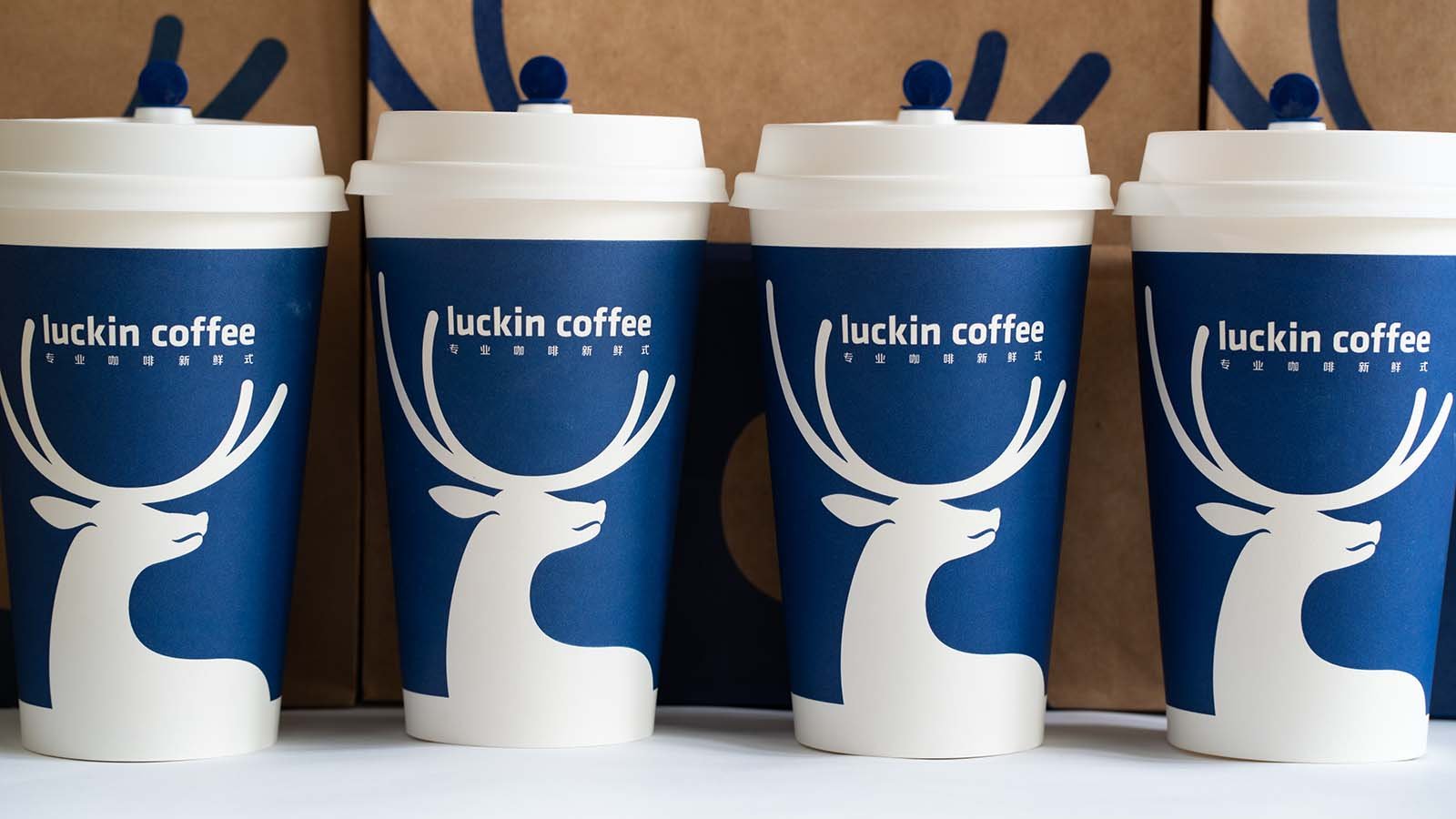Since June 3, when I told readers they should sell shares in Luckin Coffee (NASDAQ:LK), the scandal-plagued Chinese coffee delivery service, what do you think has happened? LK stock is up 40%.

If you’re a small investor, as I am, you’re still right to avoid frauds and sell out when you see them.
But markets aren’t just for investors. They’re also for gamblers and speculators.
LK Stock and the Short Squeeze
Short interest on LK stock skyrocketed in early June. About one-third of the shares traded on June 12 were sold short. Shares were borrowed expecting the value to go to zero.
The result of many investors borrowing stock to go short was a short squeeze, where other traders buy the shorted stock, trying to force the shorts to close their positions.
At one point on June 5, Luckin was trading at $6.79. If I were a trader, that’s where I would have sold. The shares opened June 22 at $3.54.
That’s because there is such a thing as gravity. Luckin’s store count has been plunging. The market winner has been Starbucks (NASDAQ:SBUX), the company Luckin originally targeted, although it’s now down as well.
Starbucks is preparing to close 400 stores, while opening others for pick-up and delivery services. It also delivered lockdown quarter earnings that were worse than expected. Here’s a bonus stock pick — buy Starbucks.
Going After Lu
If you think you’re angry because your 100 shares fell, imagine how the banks feel. They’ve sued to recover $518 million lent to Luckin by liquidating chairman Charles Lu’s private company in the British Virgin Islands. The loans had been secured by Luckin shares. The banks won their case June 21 to liquidate two funds controlled by Lu and his family.
President Donald Trump has used the scandal to bash China. His economic advisor Larry Kudlow has said “nobody really can invest with confidence in China.” A move to delist all Chinese stocks would threaten such successful investments as Baidu (NASDAQ:BIDU), JD.com (NASDAQ:JD) and Alibaba (NYSE:BABA).
But it’s not just those public companies that are under threat. Centurium, a big Luckin backer, has just raised $2 billion, part of $17.3 billion in funding now aimed at creating more companies like Alibaba.
Can the Chairman Save Himself?
An extraordinary Luckin shareholders meeting will be held July 5, aimed at tossing Lu and his allies from the board. Directors being ousted include Sean Shao, Erhai Liu and David Li. David Li is the head of Centurium — and the head of Luckin’s audit committee.
If all this sounds like a reason to buy Luckin or China, it’s not. Lu is the person calling the July meeting. He wants to give himself legal distance from the company while retaining control. Chinese prosecutors allegedly have emails from Lu authorizing the fraud. It’s possible that his entire career has been a succession of pump-and-dump schemes, inflating the value of companies and then selling out.
The Bottom Line on Luckin Coffee
Luckin is a mess, and Lu may be a Bernie Madoff. But what should be a straightforward fraud case has gotten wrapped up in politics.
Prosecutors can take decisive action by arresting Lu, seizing his assets and making an example of him. Luckin is China’s Enron. It was the decisive action of American prosecutors which kept that scandal from staining the U.S. market.
Meanwhile, I’m staying in China, but only holding companies with a track record. I’m not running to the Chinese dog track, just as I’m not doing it here. I’m also not shocked that gambling is going on there or in the U.S. And you shouldn’t be, either.
Dana Blankenhorn has been a financial and technology journalist since 1978. His latest book is Technology’s Big Bang: Yesterday, Today and Tomorrow with Moore’s Law, essays on technology available at the Amazon Kindle store. Follow him on Twitter at @danablankenhorn. As of this writing he owned shares in BABA and JD.
